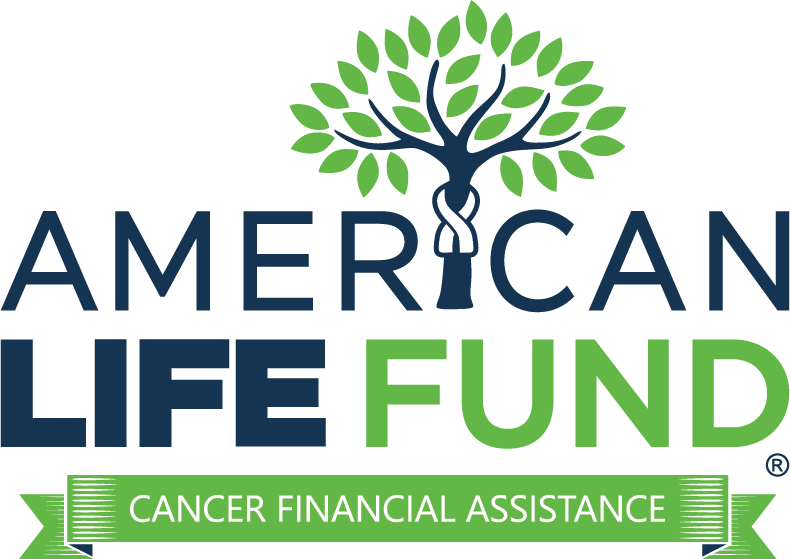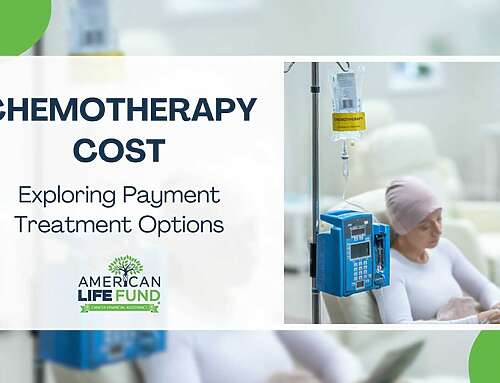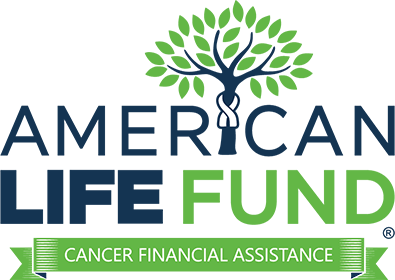A breast cancer diagnosis shifts everything. It’s not just the treatments or the medical jargon—it’s the quiet moments when the weight of it all sinks in. The worry about finances, the fear of being a burden, and the frustration of a world that often doesn’t understand what you’re going through.
Asking for help isn’t easy, especially when you’re already carrying so much. That’s why this page exists—to put practical support in front of you, from financial relief to emotional backing, so you don’t have to dig for it.
There are options, there’s help and you deserve both.
How Can Viatical Settlements Help Breast Cancer Patients?
What is a viatical settlement, and how does it work?
For many breast cancer patients, the financial strain of treatment, medication, and daily living costs is just too much of a financial strain. Even with insurance coverage, there are often out-of-pocket expenses that pile up quickly. If you have a life insurance policy, a viatical settlement may offer a way to access immediate financial relief without taking on debt or worrying about future bills.
A viatical settlement allows you to sell your life insurance policy to a third party in exchange for a lump sum payment. This means instead of your policy paying a death benefit to your beneficiaries after you pass, you receive money now when you need it most. These funds can be used however you choose, whether for medical bills, home care, pain management, or simply to relieve financial stress.
Why should breast cancer patients consider a viatical settlement?
Many people don’t realize that their life insurance policy is an asset that can be converted into cash. For those facing metastatic breast cancer or undergoing aggressive treatment, a viatical settlement offers:
Immediate access to funds – No waiting periods or loan approvals, just money when you need it.
No restrictions on how you use the money – Unlike some financial assistance programs for breast cancer, you decide where the funds go.
A way to ease the burden on loved ones – Instead of struggling with bills, you can focus on spending time with family members and prioritizing your well-being.
Who qualifies for a viatical settlement?
To be eligible for a viatical settlement, most companies require that you:
- Have a life insurance policy (this can be term life insurance, whole life insurance, or group life insurance).
- Have been diagnosed with a life threatening illness, such as advanced breast cancer.
- Have a life policy of $150,000 or more.
Many breast cancer patients use viatical settlements to eliminate financial barriers to care, cover pain management costs, or make sure that their loved ones aren’t left with overwhelming expenses. If you think a viatical settlement could help relieve financial stress during your cancer journey, American Life Fund can walk you through the process at no cost.
What Are the Treatment Options for Breast Cancer?
What are the main types of breast cancer treatments?
Every breast cancer journey is unique, and the best treatment plan depends on factors like the stage of cancer, tumor type, and overall health. While your oncology team will determine the best course of action, common breast cancer treatments include:
- Surgery – Options range from a lumpectomy (removal of the tumor) to a mastectomy (removal of one or both breasts). Some patients also choose breast reconstruction surgery after a mastectomy.
- Chemotherapy – Uses strong medications to kill cancer cells or prevent them from spreading. Chemo is often used for triple-negative breast cancer and metastatic breast cancer, which may not respond to hormone therapy.
- Radiation Therapy – Targets and destroys cancer cells using high-energy rays, often after surgery to prevent recurrence.
- Hormone Therapy – Helps treat hormone receptor-positive breast cancer by blocking estrogen or progesterone, which can fuel tumor growth.
- Targeted Therapy – Advanced treatments designed to attack specific cancer cell markers, often used in HER2-positive breast cancer cases.
- Immunotherapy – Helps the body’s immune system recognize and fight cancer cells, often used for triple-negative breast cancer.
If you are currently undergoing treatment, understanding all your treatment options and how to pay for them can help ease stress and allow you to focus on your health and well-being.
Where Can You Find Support as a Breast Cancer Patient?
What national organizations provide breast cancer support?
Many organizations offer breast cancer support services, providing everything from emotional support to financial assistance and treatment resources. Some of the most trusted national programs include:
- American Cancer Society (ACS) – Offers information on breast cancer care, support programs, and free lodging for patients traveling for treatment.
- National Cancer Institute (NCI) – Provides the latest research, clinical trials, and guidance on breast cancer treatments and risk factors.
- Susan G. Komen – Offers financial aid, local support groups, and advocacy programs for breast cancer patients and survivors.
- Patient Advocate Foundation – Helps patients developing breast cancer navigate insurance coverage, medical care, and financial assistance options.
- Cancer Survivors Network – An online community where patients and survivors can share experiences and find support services.
What online communities and support groups are available?
Many breast cancer patients find comfort in connecting with others who understand their journey. Online and in-person support groups can provide emotional support, educational resources, and a sense of community. Some options include:
- Breastcancer.org Community – A forum where patients and caregivers discuss breast cancer topics, share experiences, and offer support.
- Young Survival Coalition – Focuses on young adults diagnosed with breast cancer, offering mentorship programs and wellness workshops.
- Local hospital programs – Many treatment centers and breast centers host in-person support groups for patients and caregivers.
What educational resources can help you manage breast cancer?
Understanding breast cancer information can help patients make informed decisions about treatment, pain management, and genetic testing. Some trusted sources include:
- National Breast Cancer Foundation – Offers free educational guides, videos, and wellness programs.
- American Brain Tumor Association – Provides resources for those affected by breast cancer that has spread to the brain.
- Genetic counselors – Help assess hereditary cancer risk factors and guide patients through genetic testing decisions.
How Can Local Resources and Hospitals Help?
Where can you find specialized breast cancer treatment in your area?
Not all hospitals and clinics offer the same level of breast cancer care. If you’re looking for a treatment center with advanced therapies, clinical trials, or financial assistance programs, consider:
- NCI-Designated Cancer Centers – These facilities, recognized by the National Cancer Institute, offer cutting-edge research, specialized breast cancer treatments, and access to clinical oncology experts.
- Comprehensive Breast Centers – Many hospitals have breast centers dedicated to breast cancer treatment, offering coordinated care, genetic counseling, and support services in one location.
- Teaching Hospitals and Research Centers – Institutions affiliated with universities often provide clinical trials and access to the latest breast cancer treatment options.
What local support services are available for breast cancer patients?
Many communities have local resources to help patients navigate treatment, financial barriers, and emotional support. These may include:
- Nonprofit organizations – Groups like Susan G. Komen and the American Cancer Society offer local programs for transportation, home care, and financial aid.
- Hospital-based support programs – Many hospitals provide counseling, wellness programs, and in-person support groups to help patients manage the emotional and physical effects of breast cancer treatment.
- Patient navigator services – Many treatment centers have patient navigators who assist with insurance coverage, appointment scheduling, and finding low-cost resources.
How can you find local resources near you?
If you’re searching for specialized treatment centers, clinical trials, or financial assistance programs in your area, here are some ways to start:
- Visit the National Cancer Institute website – They provide a directory of NCI-designated cancer centers across the country.
- Call local hospitals and breast centers – Ask about their breast cancer programs, support services, and financial aid options.
- Reach out to advocacy organizations – Groups like the Patient Advocate Foundation and Young Survival Coalition can connect you with resources specific to your needs.
How Can Breast Cancer Survivors Handle Life After Treatment?
What health challenges do breast cancer survivors face?
Completing breast cancer treatment is a major milestone, but for many survivors, the journey is not over. Ongoing medical care, side effects, and emotional recovery all play a role in life after treatment. Some common health concerns include:
- Long-term side effects of treatment – Chemotherapy, radiation, and surgery can leave lasting effects, including fatigue, lymphedema, and nerve pain.
- Managing breast cancer risk – Survivors may need regular screenings, follow-up tests, and medications to help reduce the risk of recurrence.
- Hormonal and reproductive changes – Treatments may impact fertility, menopause symptoms, and bone health, particularly for young women.
How can survivors take care of their mental health?
The emotional toll of breast cancer does not always end when treatment does. Many survivors experience fear of recurrence, anxiety, or depression as they transition back to daily life.
Ways to manage emotional recovery include:
- Support groups and survivor communities – Connecting with other breast cancer survivors through organizations like the Young Survival Coalition or the Cancer Survivors Network can provide reassurance and guidance.
- Professional counseling and wellness programs – Therapists who specialize in cancer recovery can help process the emotional impact of diagnosis and treatment.
- Physical activity and rehabilitation – Working with a physical therapist can help regain strength and mobility, while exercise can improve overall mental and physical well-being.
How can breast cancer survivors manage financial recovery?
The financial strain of cancer treatment can last long after treatment ends. Survivors often face:
- Lingering medical bills and insurance challenges – Some may still need ongoing treatments, hormone therapy, or follow-up scans that come with high costs.
- Returning to work or adjusting financial plans – Many survivors need time to regain strength before returning to work or may need to adjust long-term financial plans due to career changes.
- Exploring financial relief options – Programs like the Patient Advocate Foundation and hospital-based financial assistance services can help manage outstanding medical expenses.
For those who are still struggling with financial barriers, a viatical settlement can provide relief by converting a life insurance policy into cash. This can help cover medical costs, wellness programs, or everyday living expenses without taking on additional debt.
Adjusting to life after breast cancer treatment can be challenging, but ongoing medical care, emotional support, and financial planning can help survivors move forward with confidence.
Finding the Right Support for Your Breast Cancer Journey
Facing breast cancer treatment, financial stress, and the road to recovery can be incredibly difficult, but you are not alone. Whether you are undergoing treatment, adjusting to life after cancer, or exploring financial relief options, there are resources available to help.
From national organizations and local support groups to treatment centers and financial assistance programs, finding the right support can make a meaningful difference. For those facing financial barriers, a viatical settlement may be a way to ease the stress of mounting expenses, providing access to funds when they are needed most.
If you are exploring financial options and want to learn more about how a viatical settlement could help, American Life Fund is here to guide you. Our team specializes in helping breast cancer patients access financial relief through their life insurance policy, allowing them to focus on their health, well-being, and time with loved ones.
Get a Free Consultation Today
To find out if you qualify for a viatical settlement, contact American Life Fund for a free, no-obligation consultation. You can speak with a specialist by calling 877-261-0632 or you can see if you qualify here.





